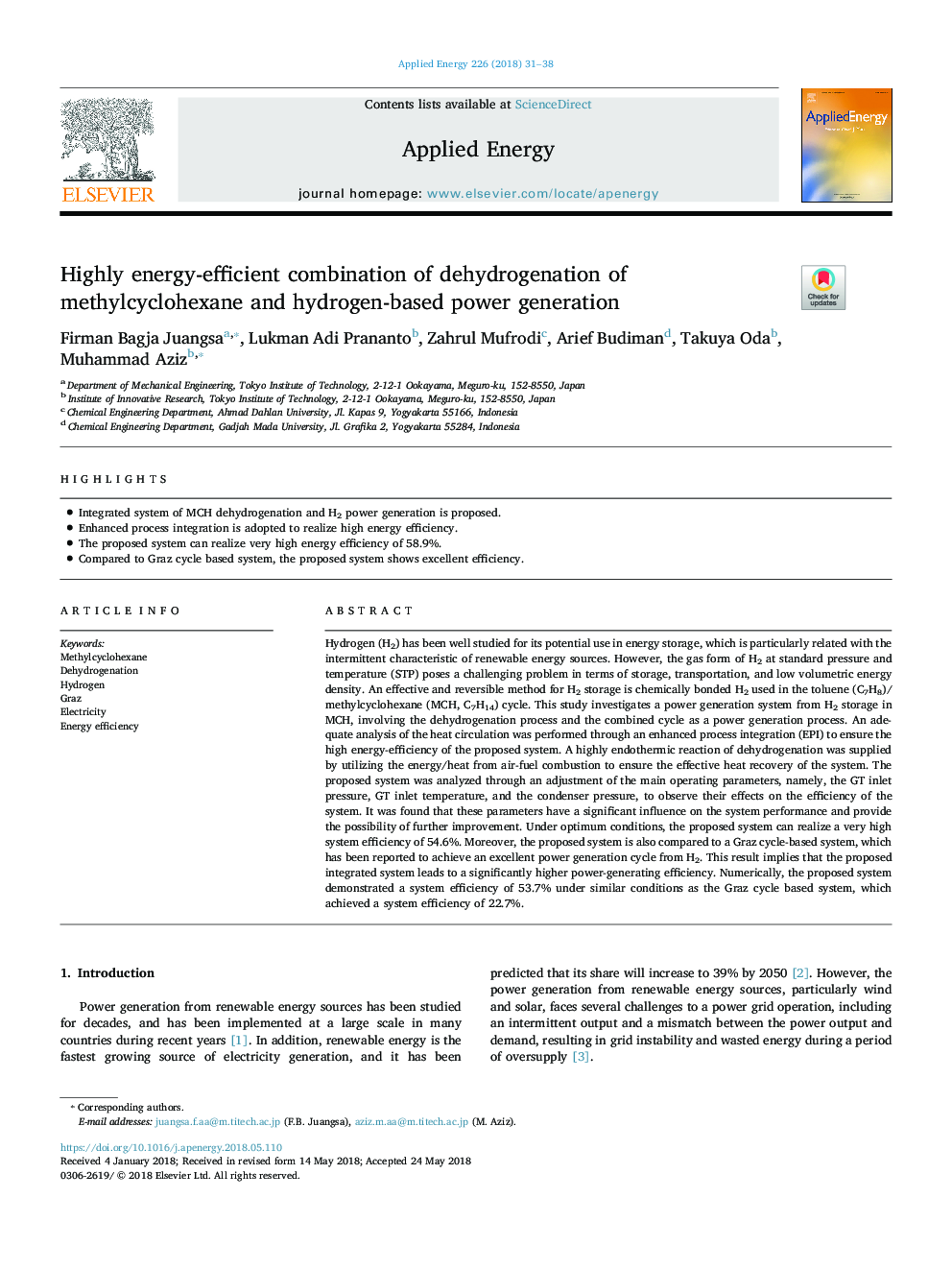| کد مقاله | کد نشریه | سال انتشار | مقاله انگلیسی | نسخه تمام متن |
|---|---|---|---|---|
| 6679843 | 1428064 | 2018 | 8 صفحه PDF | دانلود رایگان |
عنوان انگلیسی مقاله ISI
Highly energy-efficient combination of dehydrogenation of methylcyclohexane and hydrogen-based power generation
دانلود مقاله + سفارش ترجمه
دانلود مقاله ISI انگلیسی
رایگان برای ایرانیان
کلمات کلیدی
موضوعات مرتبط
مهندسی و علوم پایه
مهندسی انرژی
مهندسی انرژی و فناوری های برق
پیش نمایش صفحه اول مقاله

چکیده انگلیسی
Hydrogen (H2) has been well studied for its potential use in energy storage, which is particularly related with the intermittent characteristic of renewable energy sources. However, the gas form of H2 at standard pressure and temperature (STP) poses a challenging problem in terms of storage, transportation, and low volumetric energy density. An effective and reversible method for H2 storage is chemically bonded H2 used in the toluene (C7H8)/methylcyclohexane (MCH, C7H14) cycle. This study investigates a power generation system from H2 storage in MCH, involving the dehydrogenation process and the combined cycle as a power generation process. An adequate analysis of the heat circulation was performed through an enhanced process integration (EPI) to ensure the high energy-efficiency of the proposed system. A highly endothermic reaction of dehydrogenation was supplied by utilizing the energy/heat from air-fuel combustion to ensure the effective heat recovery of the system. The proposed system was analyzed through an adjustment of the main operating parameters, namely, the GT inlet pressure, GT inlet temperature, and the condenser pressure, to observe their effects on the efficiency of the system. It was found that these parameters have a significant influence on the system performance and provide the possibility of further improvement. Under optimum conditions, the proposed system can realize a very high system efficiency of 54.6%. Moreover, the proposed system is also compared to a Graz cycle-based system, which has been reported to achieve an excellent power generation cycle from H2. This result implies that the proposed integrated system leads to a significantly higher power-generating efficiency. Numerically, the proposed system demonstrated a system efficiency of 53.7% under similar conditions as the Graz cycle based system, which achieved a system efficiency of 22.7%.
ناشر
Database: Elsevier - ScienceDirect (ساینس دایرکت)
Journal: Applied Energy - Volume 226, 15 September 2018, Pages 31-38
Journal: Applied Energy - Volume 226, 15 September 2018, Pages 31-38
نویسندگان
Firman Bagja Juangsa, Lukman Adi Prananto, Zahrul Mufrodi, Arief Budiman, Takuya Oda, Muhammad Aziz,